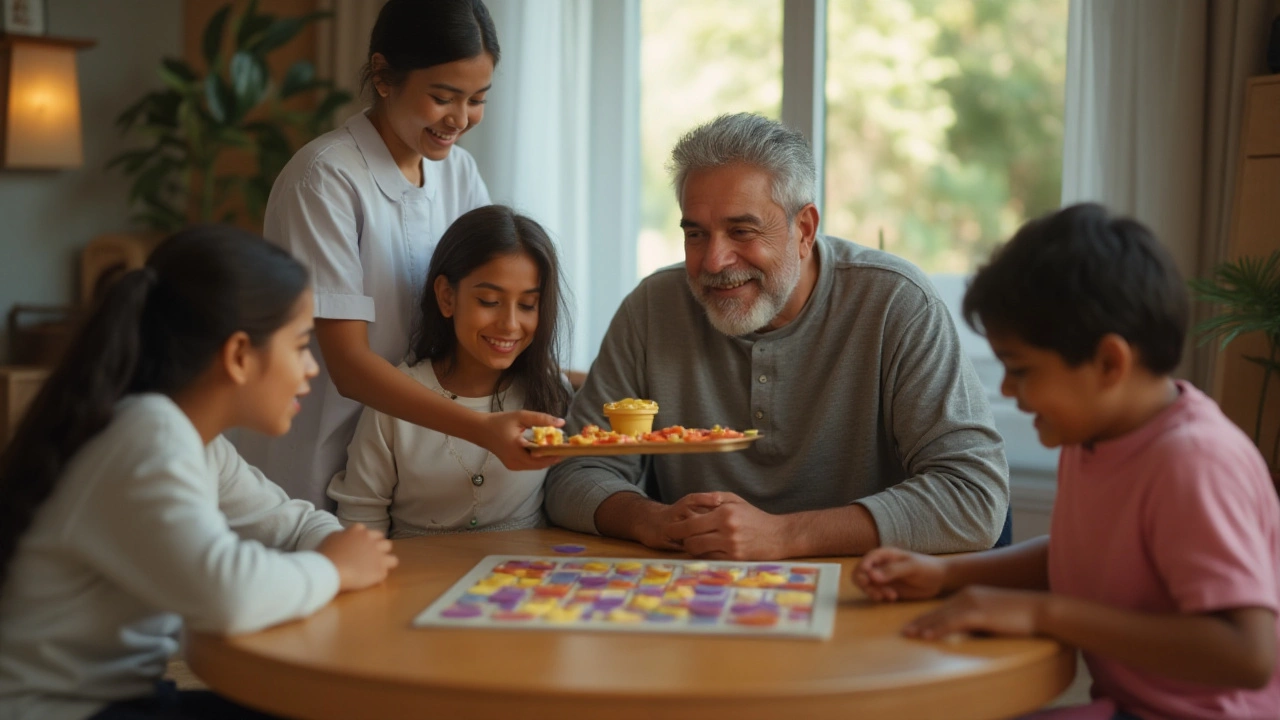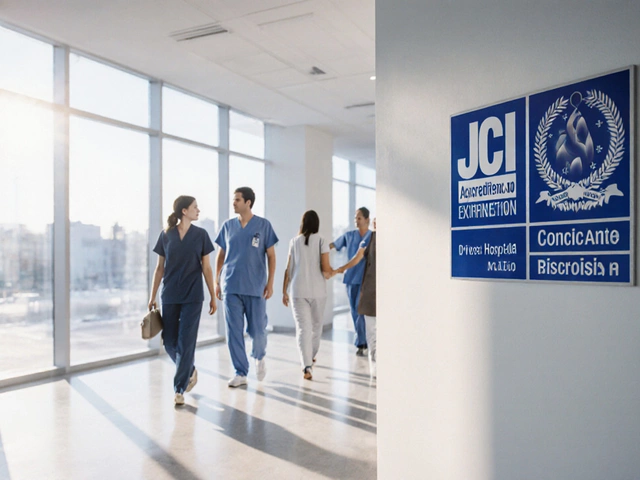Chemotherapy stands as a pivotal treatment in the fight against cancer, acting as both a shield and a sword. While its aggressive approach can effectively attack cancer cells, it often takes a toll on the body.
Understanding the journey of recovery from chemotherapy involves more than just assessing the physical scars. It's about recognizing changes that might linger and mastering the art of healing both body and mind.
Each person's experience is unique, with some finding strength they never knew they had, and others navigating a more challenging path. Exploring these narratives helps us grasp the broader picture of post-chemotherapy life.
It's crucial to consider practical strategies that can offer support and promote well-being during this journey. By shedding light on various aspects of recovery, this article aims to empower individuals and their loved ones on their road to healing.
- Chemotherapy: A Double-Edged Sword
- Physical Recovery and Healing
- Emotional and Mental Impact
- Strategies for Enhancing Post-Chemotherapy Health
Chemotherapy: A Double-Edged Sword
Chemotherapy, a cornerstone in cancer treatment, often acts as a double-edged sword. It is designed to aggressively target and eliminate cancerous cells with the aim of curbing the disease. This aggressive nature is where its power and problem lie. While battling harmful cancer cells, chemotherapy agents also impact healthy cells, leading to a myriad of side effects. These range from the expected, like hair loss and fatigue, to less visible impacts such as decreased immunity and gastrointestinal issues. This dual action raises an important question: Can one's body ever fully recover from the physiological and emotional upheavals inflicted by such treatments? Understanding this dichotomy helps us negotiate the complexities of cancer treatment.
The fundamental aim of chemotherapy is to eradicate fast-growing cells, a hallmark of cancer tissue. However, many naturally fast-dividing cells lie within our bodies, including those in the hair follicles, bone marrow, and the digestive tract. These cells inadvertently become collateral damage in the battle against cancer. This is why patients often experience hair loss and digestive disorders. But these are just surface-level effects. Beneath the skin, a body's entire biological system is affected, including its capacity to produce blood cells and fight infections. According to the American Cancer Society, some chemotherapy drugs can directly harm bone marrow cells, leading to conditions such as anemia. These effects can pose long-term challenges for patients even after completing chemotherapy.
"Chemotherapy can be a tricky beast. While it's adept at assaulting cancer cells, the surrounding healthy tissue doesn't walk away unscathed," says Dr. Lauren Pennington, a respected oncologist. Her insights remind us of the careful balancing act chemotherapy presents: eradicate disease, but mitigate the aftermath.
The emotional and mental effects of chemotherapy mirror its physical impacts. The journey through treatment is a transformative one, altering patients' perceptions of themselves and their surroundings. The drastic change in one's physical appearance, paired with the energy-draining realities of treatment, can significantly affect a person's mental health. Anxiety, depression, and a sense of lost identity are experiences frequently shared by those who have undergone chemotherapy. More research is emerging on how to support mental recovery just as vigorously as physical recovery during the post-treatment phase.
To grasp the full impact of chemotherapy, we must also consider its effects over time. Some patients report symptoms known as chemotherapy-induced peripheral neuropathy (CIPN), where nerves in the limbs become damaged, leading to pain and sensory alterations. Data from research studies highlight that about 30% of patients experience CIPN for months, and sometimes years, after treatment. Strengthening long-term recovery strategies is a growing field of interest for many healthcare providers, as these symptoms underscore the need for a more holistic approach to cancer recovery.
Chemotherapy’s true nature lies in its complex effects, profoundly changing the lives of those it touches. While its role in saving lives is undeniable, its repercussions demand comprehensive care plans that encompass both immediate and extended periods post-treatment. These plans are crucial to ensuring that individuals are supported in regaining their health and living fulfilling lives beyond cancer.

Physical Recovery and Healing
When the arduous process of chemotherapy comes to an end, the healing journey for the body just begins. While chemotherapy is a powerful option in cancer treatment, it impacts various physical systems as it works to eliminate cancer cells. It's critical to acknowledge and understand the ways our bodies react and recover from this treatment. The pathway to recuperation involves not just time but also a commitment to nurturing the body back to its optimal level.
One of the well-known facts of post-chemotherapy recovery is the toll on physical strength and endurance. Many patients experience significant fatigue, which can persist for weeks or even months after the final treatment. This fatigue is not just ordinary tiredness, but rather an all-encompassing exhaustion that can make daily activities challenging. Medical professionals often encourage gradual activity increases. Light exercises, such as walking or yoga, can slowly help rebuild strength without overwhelming the body's current capacity.
A crucial aspect of physical recovery includes addressing the dietary needs of the body. Chemotherapy can alter taste buds, reduce appetite, and change nutrient absorption. Patients, therefore, need to pay attention to their nutritional intake, ensuring meals rich in protein, vitamins, and minerals. Sometimes, working with a nutritionist who understands the specific needs of post-chemotherapy patients could be beneficial. A balanced diet supports not just physical recovery but also the immune system in rebuilding and regenerating healthy cells.
According to the American Cancer Society, a diet rich in fruits and vegetables can help fortify the body's defenses during the healing process.
Another important consideration is the body's skin and hair health. Chemotherapy can affect skin texture, making it dry or more sensitive, and is the reason behind hair loss, a common side effect. Hydration is key for skin health, and patients should use gentle and moisturizing products to protect against dryness. Hair usually starts to grow back a few months post-treatment, though it might have a different texture or color. Hair care during this period is crucial, and using mild shampoos and being gentle while washing or styling hair can prevent unwanted stress on new growth.
Chemotherapy might impact bone density as well, making bones more fragile. It’s advised to consult with healthcare providers about incorporating calcium and vitamin D supplements, which are essential in maintaining and improving bone density. Physical activity tailored to a patient's condition and capabilities, like weight-bearing exercises, can aid in strengthening bones.
Recovery isn't just about mitigating damage, it’s also about fostering resilience and renewal. Providing the body with the environment and nutrients it needs to heal is a proactive part of the recovery process following chemotherapy. This multifaceted approach to body recovery from chemotherapy helps to ensure a holistic healing experience, providing a foundation for overall well-being as patients return to their normal lives.

Emotional and Mental Impact
The aftermath of chemotherapy often involves significant emotional and mental challenges that can feel as daunting as the physical hurdles. Understanding these effects is crucial. It's not uncommon for survivors to experience 'chemo brain', which includes feelings of forgetfulness, confusion, and a general fogginess that leaves them questioning their cognitive abilities. While the exact cause is still under study, these symptoms can be distressing, affecting daily functioning and leading to frustration. Addressing cognitive difficulties becomes a part of the healing process, requiring patience and often creative strategies.
Emotions run deep post-treatment, ranging from relief to an unexpected wave of anxiety or depression. Knowing this mixture of feelings is normal doesn't always make the experience easier. Survivors often report a sense of isolation, as family and friends might not fully understand the internal battles. This can lead to loneliness even when surrounded by loved ones. Cancer treatment is a life-altering experience that can influence a person's sense of identity, requiring them to reassess who they are and where they fit in their world. This transformation can bring about existential questions and a search for new meaning in life, which is both daunting and enlightening.
"Healing is an art. It takes time, it takes practice. It takes love." - Maza Dohta
The stress and trauma of battling cancer and undergoing chemotherapy can also lead to Post-Traumatic Stress Disorder (PTSD), a condition well-documented among survivors. Therapy and support groups play essential roles in providing solace and understanding. These resources offer a community where individuals can share stories, coping strategies, and emotional support, representing a safe space to express fears and triumphs alike. Developing a regular mental health regimen, including meditation and mindfulness, can significantly improve outcomes, as these practices are shown to reduce stress and enhance quality of life.
Moreover, building a supportive network is invaluable. Whether it comes from family, friends, or fellow survivors, encouragement and empathy are vital. Cancer survivors should feel empowered to seek help, from professional therapists to peer groups, as they navigate this new chapter of life. Taking proactive steps to ensure mental well-being is just as important as focusing on physical health. By embracing their vulnerabilities and nurturing their resilience, survivors often emerge with a deeper appreciation for life and the power of human strength.

Strategies for Enhancing Post-Chemotherapy Health
Emerging from chemotherapy can often feel like stepping into a new world. The process may have taken a significant toll on both body and spirit, but with thoughtful strategies, one can support a smoother road to recovery. First, it's crucial to focus on balanced nutrition, which can help rebuild strength. Chemotherapy often disrupts one's appetite and nutritional balance, so adapting to small yet nutrient-rich meals daily can be beneficial. Incorporating a variety of fruits, vegetables, whole grains, and lean proteins ensures that the body gets the essential nutrients necessary for repair and rejuvenation. For example, foods rich in antioxidants, such as berries, and those containing omega-3 fatty acids, like salmon, aid in reducing inflammation and boosting the immune system function.
Another vital aspect to consider is physical activity. Exercise might seem daunting after treatment, but gentle activities like walking or yoga can be incredibly supportive. Regular physical movement helps alleviate fatigue and stimulates circulation, enhancing mood and energy levels. It's advisable to start slow and listen to one's body, gradually increasing activity levels as strength returns. Working with a healthcare professional to develop a tailored exercise plan can offer additional guidance and motivation.
Mental health is just as critical as physical recovery. Chemotherapy can impact cognitive function and emotional health, leading to conditions such as anxiety and brain fog. To counter these effects, techniques such as mindfulness meditation or deep-breathing exercises can offer a sense of calm and clarity. Engaging with support groups or mental health professionals might provide the compassionate space needed to navigate emotional complexities. Investing time in hobbies or creative outlets can also foster positivity and mental well-being, helping one connect with joy and purpose in life again.
An often overlooked component is hydration. After chemotherapy, drinking adequate amounts of water can help to flush out toxins and promote optimal cellular function. While the exact amount of water varies per individual, aiming for at least 8 to 10 glasses a day is a widely accepted goal. In addition to plain water, herbal teas and hydrating fruits like watermelon can be included to keep hydration levels in check. Staying hydrated not only supports bodily functions but also assists in managing treatment-related side effects like dry mouth and constipation.
"Regular follow-ups with your healthcare provider are essential to monitor your recovery," advises Dr. Anderson, a respected oncologist. "These appointments allow for the timely identification and treatment of any lingering issues, ensuring that patients remain on a steady path towards full recovery."Establishing a solid healthcare follow-up routine after chemotherapy is a proactive step towards optimal health. These check-ups aren't just about monitoring cancer recurrence but also about managing side effects and addressing any new symptoms that may arise. Open communication with healthcare providers ensures that patients have access to a comprehensive support system tailored to their unique needs. Additionally, staying informed about any new treatment options or wellness approaches can empower individuals as they navigate their post-chemotherapy journey.

 Is Medical Tourism Safe in Mexico? What You Need to Know Before You Go
Is Medical Tourism Safe in Mexico? What You Need to Know Before You Go
 Do You Carry Your Own Baby with IVF?
Do You Carry Your Own Baby with IVF?
 How Did Kelly Clarkson Lose All Her Weight? Real Strategies Behind Her Transformation
How Did Kelly Clarkson Lose All Her Weight? Real Strategies Behind Her Transformation
 Which Nationality Eats the Healthiest? A Global Look at Diet and Wellness
Which Nationality Eats the Healthiest? A Global Look at Diet and Wellness
 Can You Kneel After Knee Replacement? What Really Happens and When You Can Expect to Kneel Again
Can You Kneel After Knee Replacement? What Really Happens and When You Can Expect to Kneel Again